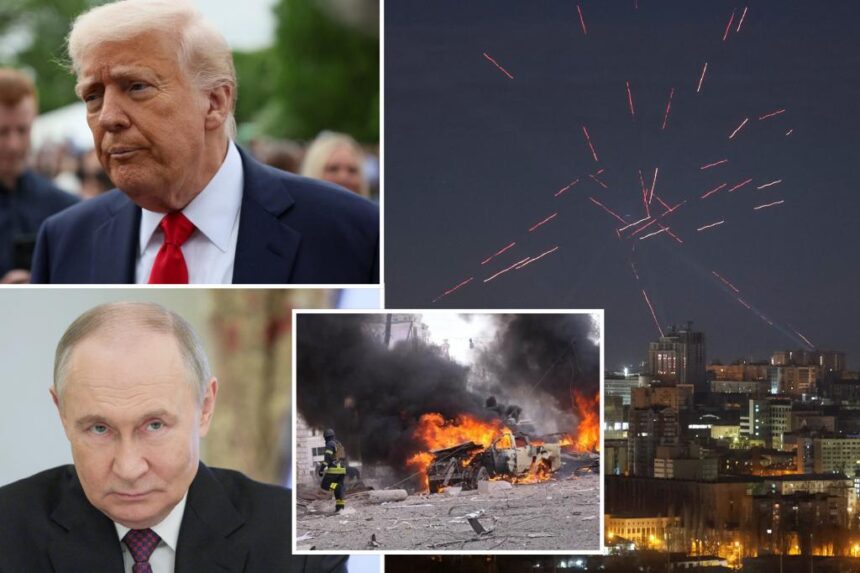President Trump’s push for peace in Ukraine faced a setback this week as Russia rejected his demands to end the war. The Kremlin’s top spokesman, Dmitry Peskov, dismissed the idea of setting “hard deadlines” for peace negotiations, calling it an exercise in futility. Despite Trump’s readiness to move on if a deal is not reached within days, Moscow remains hesitant to commit to a timeline.
In response to reports about early details of a proposed peace plan, Peskov stated that Russia was not aware of the terms. He emphasized the complexity of the Ukrainian settlement issue and the need for continued dialogue with the Americans through various channels. Special Presidential Envoy Steve Witkoff was expected to visit Russia to finalize the agreement, but no official schedule had been set as of Tuesday.
While Moscow is open to direct talks with Ukraine, Peskov hinted at the possibility of negotiations in a bilateral format. Russian President Vladimir Putin suggested considering a halt to strikes on civilian infrastructure as part of the peace process. However, Peskov noted the challenges of negotiating directly with Ukraine due to formal restrictions imposed by the Ukrainian government.
Despite Russia’s admission of purposeful strikes on civilian locations, Peskov defended these actions as justified under certain circumstances. He argued that strikes targeting civilian objects may be permissible in cases of retribution or military necessity. The recent missile strike in Sumy, which resulted in the deaths of 35 civilians, was cited as an example of a justified assault due to alleged activities by the Ukrainian Armed Forces in the area.
As the peace talks continue to unfold, both sides are grappling with the complexities of the conflict and the need to balance military objectives with humanitarian concerns. The path to a resolution remains uncertain, with Russia’s stance on civilian casualties and Ukraine’s reluctance to engage in direct negotiations posing significant challenges to the peace process.








